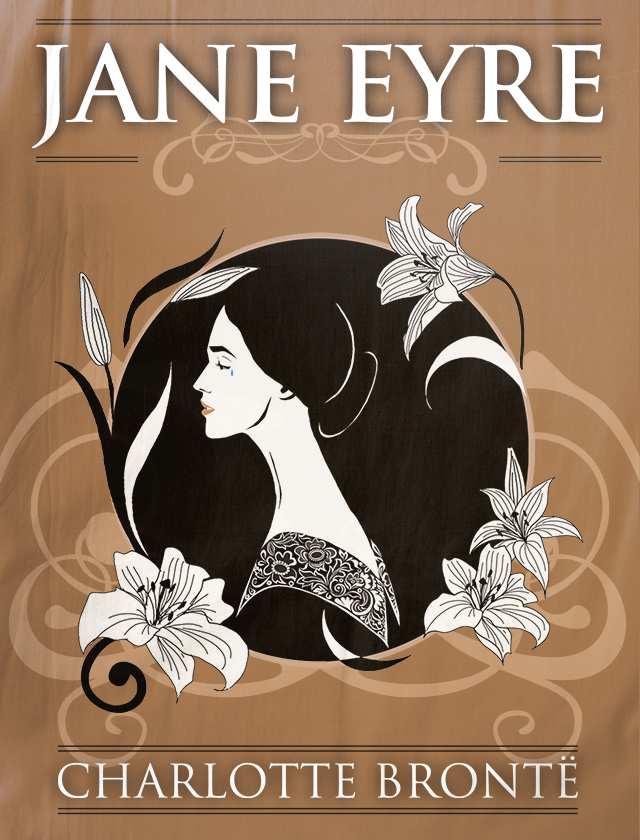Jane Eyre
by Charlotte Bronte
Jane Eyre
Jane Eyre—Jane has at once an independent, artistic spirit and a sympathetic, human nature that desires the companionship of a kindred soul. Jane’s longing for such a soul may be considered the result of an unfortunate childhood in which she was denied real friendship or appreciation. Her first true friend is not made until Jane’s transfer to Lowood, where she is attracted to the silent sufferings of Helen Burns, whose sympathy for Jane’s own unjust punishment inspires Jane to a kind of tranquility. As Jane matures, she develops an outlook that is confident, poised and self-possessed. She is convinced of her abilities and prefers to examine rather than be examined.
When Jane falls in love with Rochester, it marks the beginning of a new consciousness, which demands new development in Jane. Although her heart is tied to Rochester’s, she will not risk offending God or violating her own sense of self-respect in order to be with him in an unlawful relationship. Her realization that she must leave or lose herself to her passion for Rochester is indicative of her determined ability to place her head over her heart. This is not an easy thing for her to do, since she is a very passionate young woman. It is commendable that she should strive against what would otherwise be a natural good (her love for Rochester), but in these circumstances is a decided evil (he is already married).
Jane is not so insensible as to forget Rochester, however. Even from a distance, she attempts to discover how he gets on following their separation. When no word arrives for a year and the offer of marriage from another suitor arrives, Jane decides to seek Mr. Rochester herself. She discovers that tragedy has befallen Thornfield and that misfortune has come to Rochester. However, since his wife has died, he is now free to remarry. Jane’s devotion to Rochester illustrates both the strength and the spirit of her love: There is no sense of religious legalism in Jane; she is rather one who is guided by a kind of romantic spirit that is yet...
Sign up to continue reading Jane Eyre >